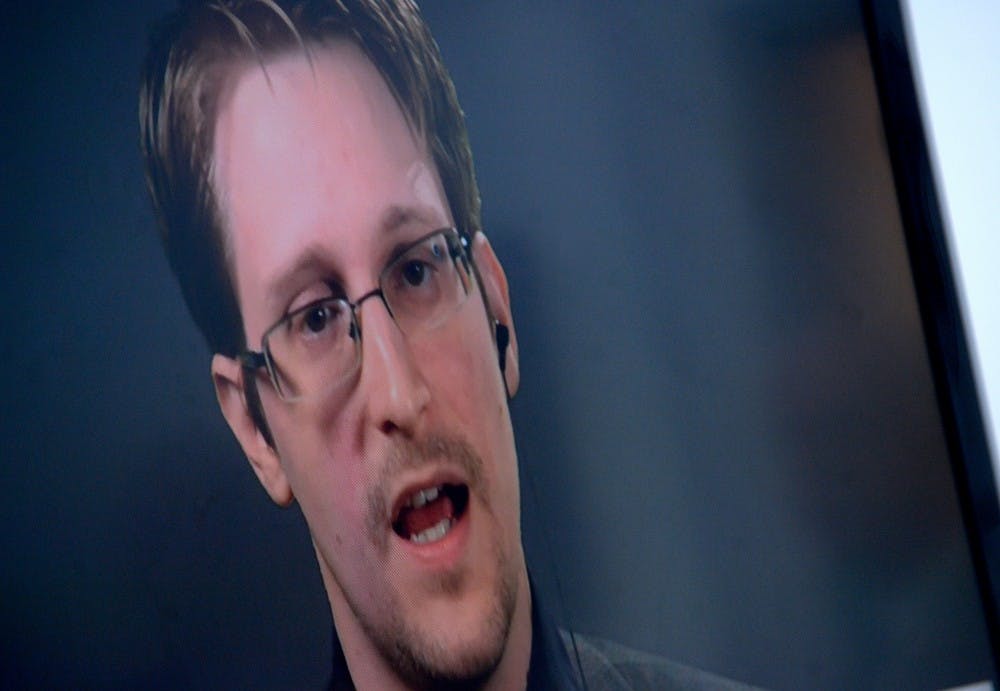In 2014, Edward Snowden gave up a nice life, a well-paid job and freedom in defense of the people’s right to know how our lives are being monitored. Debate about our data falls in and out of the mainstream, but we need to be constantly vigilant about the forces trying to collect and use our personal data.
Snowden exposed an illegal U.S. program that swept up millions of Americans' data. In one story, the Guardian reported that the U.S. was collecting bulk telecommunications data on Americans and storing it indefinitely. Programs monitoring internet traffic were also exposed.
Leaked NSA PowerPoint slides show that the NSA intended to “Collect It All” and “Know It All.”
Section 702 of the Foreign Intelligence Surveillance Act authorizes the U.S. government to collect essentially all data on foreign subjects without a warrant. This collection regime incidentally collects data on Americans who are in contact with targeted foreign nationals.
In 2015, Congress passed the Freedom Act, which limited phone record collection. However, the main apparatus for collection, section 702, remains wholly intact. In January 2018, Congress reauthorized section 702 on a bipartisan level, maintaining the global surveillance system for President Donald Trump and future administrations. Debate over the bill was cut short and was little national fanfare over the matter.
Last year, the Intercept published a story describing how section 702 can still be used to monitor domestic journalists who are in contact with foreign nationals. In an open letter to the community, the Electronic Frontier Foundation described the reauthorization as guaranteeing “six more years of FBI access to giant databases of these NSA-collected communications, for purposes of routine domestic law enforcement that stray far from the original justification of national security.”
If government surveillance is a marginalized topic, then corporate surveillance is almost completely ignored. The year 2019 is a time filled with data extraction, surveillance and connectivity. This is the world of the internet of things. Personal data is often used in ways we couldn’t possibly know about.
In the corporate world, there are no courts or safeguards that could reasonably protect Americans from the abuse of their data. Government regulations lag far behind the capabilities of the tech giants like Google when it comes to data practices. Harvard business professor Shoshana Zuboff coins the term “Surveillance Capitalism” to describe this new paradigm.
If we want to participate in the modern world, we must be willing to sell our digital selves to tech giants. All we have are End User Licensing agreements and privacy policies that go universally unread. These “un-contracts” or “surveillance contracts,” as Zuboff refers to them, strip people of control over their own data. Vague references to “third party services” serve as backdoors to allow unlimited collection and sale of personal data.
Digital behavior has been the target of collection and manipulation, but the logic has slowly been extending into the real world.
Data from Fitbit and smart watches include personal things like blood pressure and heart rate, along with location and temporal information. Smart speakers such as Alexa and Google Home can interpret sound data to determine things like content of conversations as well as levels of stress.
All of this is used to predict and modify various actions people take in the digital world and physical world. Right now the main purpose of this technology is advertisement, but this method of behavioral modification is slipping into the real world. The Cambridge Analytica scandal provided an excellent example of how your digital persona can be sold to the highest bidder.
Corporate control of this data is bad enough, but if we don’t change the national conversation, it is only a matter of time before the government plays a larger role in this arena. The relationship between big tech companies and the Pentagon is well established. If we are not vigilant, the relationship could quietly creep into the world of domestic surveillance. Snowden gave up his life to help steer the world away from a global surveillance state. The fight to prevent that vision from actualizing still continues every day.






